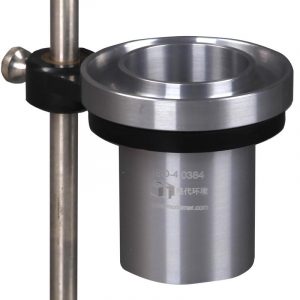Gain insight into kinematic and dynamic viscosity
In the field of fluid mechanics and materials science, viscosity is a key physical property that describes the flow properties of liquid or semisolid substances. The two main concepts of viscosity are kinematic viscosity and dynamic viscosity, which are closely related but slightly different in some aspects.

1. Kinematic viscosity: Kinematic viscosity is a measure of the internal resistance of a liquid when it flows under gravity. It is usually represented by the symbol υ, which is expressed as m²/s in the legal unit system of measurement, while mm²/s, St (s) or cSt (Centis) are commonly used in the common non-legal units of measurement. The value of kinematic viscosity can be determined by an instrument such as a product capillary viscometer.
Gain insight into kinematic and dynamic viscosity
2. Dynamic viscosity: Dynamic viscosity is a measure of the internal friction force of a liquid flowing under a certain shear stress. It is usually denoted by the symbol η, and the legal unit of measurement is Pa· second (Pa·s) or millipa · second (mPa·s). Non-legal units of measurement are often expressed as poise (P) or centipoise (cP). Dynamic viscosity can be measured by devices such as digital rotary viscometers.
The relationship between these two viscosities is generally applicable to Newtonian fluids, that is, fluids that satisfy Newtonian fluid laws. Newtonian fluids are characterized by a flow velocity proportional to the shear rate under different shear stresses. In this case, the relationship between kinematic viscosity and dynamic viscosity can be expressed by the following formula:
Dynamic viscosity = kinematic viscosity × liquid density
ηt = υt × ρt
Gain insight into kinematic and dynamic viscosity
Where ηt represents the dynamic viscosity at temperature t (in mPa·s), υt represents the kinematic viscosity at temperature t (in mm²/s), and ρt represents the density of the liquid (in g/cm³).
This relation illustrates that in the case of Newtonian fluids, the dynamic viscosity and kinematic viscosity are related to each other through the density of the liquid. This relationship is very important for many engineering and scientific applications, especially in the analysis of fluid flow properties and fluid engineering design.
In summary, viscosity is an important physical property used to describe the flow characteristics of fluids. Kinematic and dynamical viscosity are two key viscosity concepts that have different uses in different applications, but in the case of Newtonian fluids there is a simple linear relationship between them. A thorough understanding and measurement of viscosity is important for research and engineering applications in several fields.
